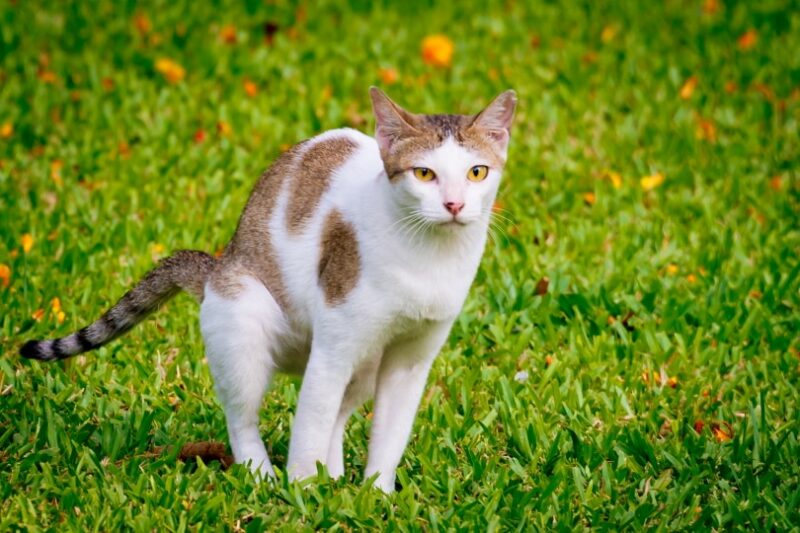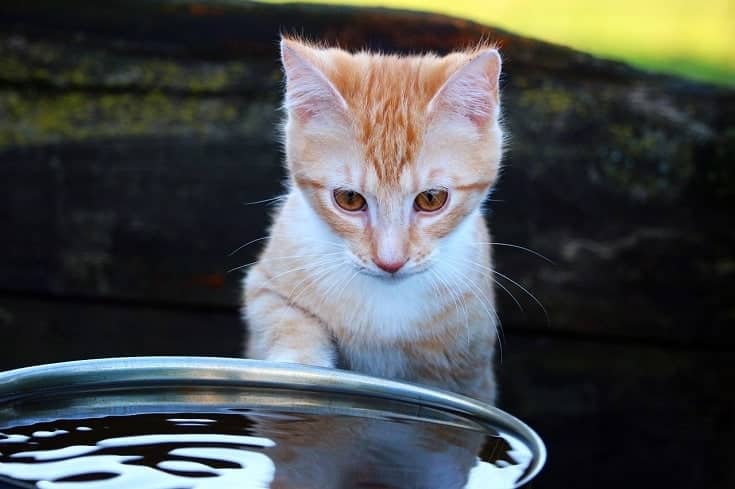Should your cat be an indoor or outdoor pet? Among cat owners, this question can be controversial. There are strong opinions on both sides of this argument. The arguments can saturate discussion boards and online conversations, making it difficult for cat owners to understand what is best for their pets.
This article will provide clarity on this highly disputed topic and discuss the pros, cons, and legalities of free-roaming cats. While the goal of this article is to allow you to make your own informed decision regarding free-roaming, it is still advised that you consult a vet to discuss the particulars of your cat’s situation and needs.

Are Cats Allowed to Roam Free?
Cats are classified as domestic animals and are treated as pets and livestock under government laws and regulations. But when it comes to free-roaming cats, the legalities can get tricky, especially when they roam far from their homes.
Should free-roaming cats be classified as domestic animals or as invasive wildlife? Currently, the status of free-roaming cats is poorly defined, and the management of these cats is insufficient and complicated.
The best way to determine whether you can legally have a free-roaming cat is to check with your local governing offices and see if they have specific regulations. For example, California’s free-roaming cat laws differ from the laws other states have put in place.

How Far Do Cats Roam From Their House?
If you allow your cat to roam freely, how far do you expect them to go? Perhaps you’re expecting that they’ll wander a few hundred feet or go to the next yard and back. According to research by the University of Illinois Urbana-Champaign, cats can wander much farther.
While owned cats tend to stay close to home, they have been known to establish relatively large territories. The study found that owned cats would cover an average area of 4.9 acres.
So, if you think your cat is limiting themself to your backyard, that’s almost certainly not the case. Even if your yard is fenced in, there’s a good chance that your cat has found a way to get around the barrier and wander farther than you thought they could.
Another interesting discovery of this study was the habits of owned cats. Unlike feral cats, owned cats randomly wandered through different habitats, potentially exposing themselves to new dangers or encroaching on a feral cat’s territory. This overlap of territories could cause trouble for the cats involved, as it may cause them to fight.
Nearly 5 acres of land is a lot of roaming space. Yet, this amount is not the maximum your cat is capable of; some cats have larger territories. The same study discovered feral cats amassed much greater territories than owned cats.
While owned cats chose to remain close to their homes, feral cats didn’t have the same inclination. One feral cat was discovered to have a roaming range of 1,351 acres! While your cat may choose to remain within a close radius of the home, that doesn’t mean they cannot wander even farther.


Pros and Cons of Free-Roaming Cats
Assuming there are no local ordinances prohibiting your cat from free-roaming, you are free to decide whether your cat will be an indoor or outdoor cat. To make the most informed decision possible, consider the pros and cons of allowing your cat to free-roam.
Pros
- A healthy body weight: Typically, cats that venture outdoors can maintain a healthy body weight easier than cats that spend all of their time indoors. This is because they have more room to wander, run, jump, and engage in other physical activities.
- Easy access to enrichment: Enrichment is an important part of a healthy cat’s life and can be easily found outdoors. Outdoor cats can explore, climb, chase, and find new ways to entertain themselves.
- Freedom: If your cat was a stray you brought inside the home, they may want to get back outside because it is what they are accustomed to. Adjusting to an indoor-only lifestyle can be a challenge, after all.
Cons
- Exposure to illnesses: Cats that roam outdoors are much more likely to encounter other pet cats or feral cats carrying illnesses such as feline leukemia virus and feline immunodeficiency virus.
- Exposure to parasites: Fleas, ticks, and other parasites are a much larger threat to outdoor cats than indoor cats. The more time your cat spends outside, the greater their chances are of bringing home an unwanted visitor.
- Unwanted pregnancy: If you have an unspayed female cat, it is not recommended that you let her roam because she may become pregnant.
- Threats to safety and well-being: Unsupervised access to the outdoors presents significant risks to your cat’s safety. Dogs, other cats, wildlife, or humans can harm your cat. They will also be at a higher risk of vehicular accidents.
- Exposure to toxins: Hazardous chemicals are used all around your home. Antifreeze, rodent poisons, insecticides, and more can harm your cat. Not to mention, natural toxins such as lilies or azaleas can threaten your cat’s safety. If your cat ingests any of these toxins while wandering outdoors, you may not have the opportunity to save them before it is too late.

Should You Let Your Cat Roam?
Consulting a vet is a great way to make a highly informed decision since they’ll consider your pet’s age, health status, and special needs when making a decision. If the vet lives near the same area as you, they can provide a unique perspective on the consequences of free-roaming in your neighborhood.
If you need to speak with a vet but can't get to one, head over to PangoVet. It's an online service where you can talk to a vet online and get the advice you need for your pet — all at an affordable price!

For example, cats in rural, suburban, and urban spaces may have different free-roaming experiences. Cats in rural areas are more likely to encounter dangerous wildlife, while cats in urban areas will come across more vehicles. Depending on where you live, your cat may be more exposed to specific threats than others.
Another factor to consider is the environment, and not just how the environment may affect your cat, but how your cat can impact the environment. Cats can be a significant threat to wildlife, particularly in rural and suburban areas.
In Wisconsin alone, free-roaming cats are believed responsible for the deaths of an estimated 7.8 million birds per year. The more free-roaming cats an area has, the greater strain their bird or small mammal populations will face.
If the pros of free-roaming still sound more enticing than the cons, consider the following: every benefit to free-roaming can be provided indoors. If you’re concerned about weight management, you can monitor your cat’s calorie intake and provide them with regular exercise.
If you’re concerned about enrichment and freedom, you can provide plenty of toys and even a catio for your cat to enjoy. Essentially, there are ways to make the indoors work for you and your cat. There is rarely a cat that absolutely must be allowed to free-roam.


Final Thoughts
Whether or not cats should be allowed to free-roam is a controversial issue. Advocates for both sides have strong opinions on the issue. Indoor cats typically live longer and healthier lives than outdoor cats and are less of a threat to the local animal population. Ultimately, what is best for your cat is the right decision.
Featured Image Credit: Jeannette1980, Pixabay


















